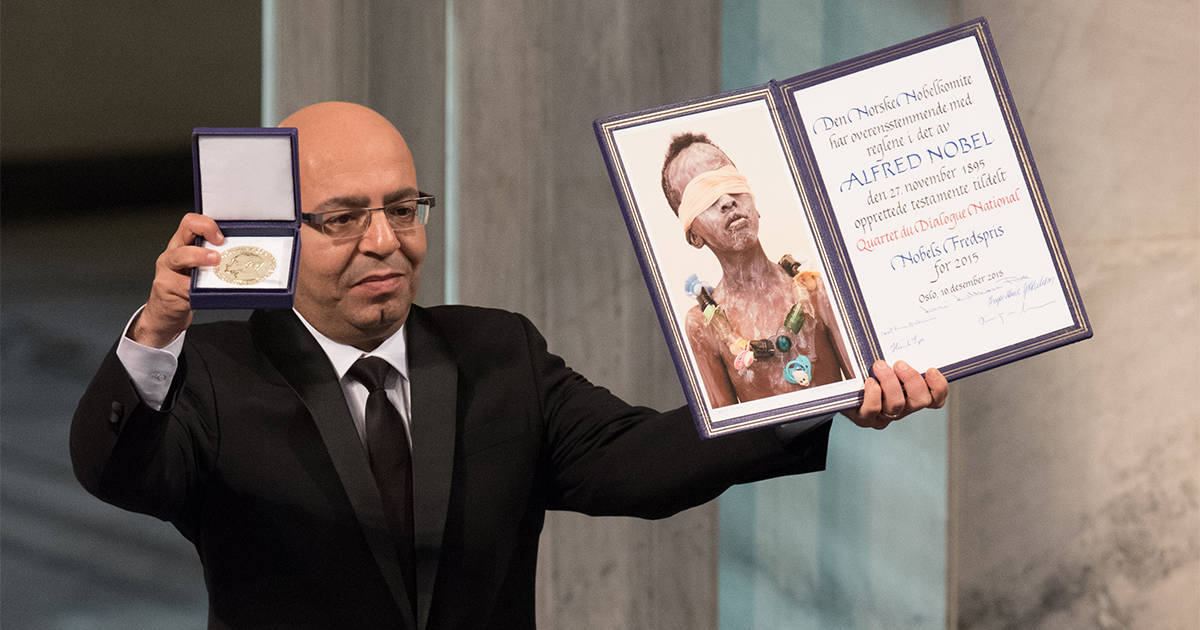Nathan Gardels is the editor-in-chief of Noema Magazine.
The literary journalist Ryszard Kapuściński personally witnessed most of the post-war eruptions of de-colonization and revolution in what used to be called the Third World. He set down his reflections in a series of bestselling books such as “The Emperor,” about the fall of Haile Selassie in Ethiopia in 1974, and “Shah of Shahs,” about the Iranian revolution in 1979.
Kapuściński noted a pattern: revolutions always occur in three turns before finally being established. First, mass unrest overturns a spent and repressive regime. Second, the most organized forces seize power and, as first-movers, become the new masters. Discontent with their failure to produce the promised utopia leads to the third stage in which either the new masters refuse to let go and enforce their rule, or they give way to the establishment of a new set of governing practices and institutions that address the social injustice that sparked upheaval in the first place.
This latter moment has arrived in Tunisia. The Arab Spring of the early 2010s, which spread to Egypt, Syria and elsewhere before being crushed, was ignited by the Jasmine Revolution in Tunisia in the wake of the self-immolation of a street vendor over the seizure of his vegetable stand. The rebellion forced the long-time ruler, President Zine el-Abidine Ben Ali, from power in 2011. Then democratic elections favored the most organized parties in opposition and brought an Islamist government to power. In short order, disaffection with the new regime set in, leading to more protests and even assassinations.
Unlike in Egypt, however, the military did not step in to restore order and sideline those excluded from power. Instead, in Tunisia, as Jordan Reimer describes in The World Post this week, in the summer of 2013 “civil society groups were able to come together and constructively work with the government to hold a series of national dialogues that eventually produced new elections and a new constitution. Rather than accede to nihilistic calls for the overthrow of the government, social and political leaders came together to address protesters’ demands responsibly, earning the 2015 Nobel Peace Prize for their efforts.” The Tunisian National Dialogue Quartet that was awarded the prize has set the tone for what comes next.
Now the most recently elected leadership is hard at work implementing the third stage of new institution-building in which Kais Saied, the new president who is a constitutional law professor and outsider boosted to power by a surging youth vote, is charting the path ahead. Distrusting party-based representative democracy as the redoubt of organized special interests, he aims to rewrite the constitution to give the direct democracy of local councils the decisive say in electing representatives to parliament. “Broadening our democratic imagination in this way,” he says, “helps build local movements that are capable of overcoming the inequities existing in our country.”
Whether a partisan parliament will agree to Saied’s approach of integrating the public more directly into governance remains to be seen. But it offers a fresh response to the turmoil currently sweeping the Middle East once again in what some are calling the Arab Spring 2.0. “The future of democratic governance in the Middle East is better served if Lebanon and Iraq follow the Tunisian model rather than the Egyptian one,” Reimer writes. “Those still holding on to power would be wise to heed the lessons of summer 2013: Listen to the people. Work across the political spectrum. Create true broad-based reform, which may involve fundamental changes to the constitutional system. Those in the street also should be careful what they wish for. Democracy isn’t perfect.”
Saied’s idea of “broadening our democratic imagination” ought to be closely watched elsewhere as well, from Chile to Bolivia and even in the long-established but decayed democracies in Europe and the United States. It fits the tenor of the times when social networks can empower the grassroots with agency as never before, helping to mend the breach of distrust that has emerged everywhere between the institutions of self-government and the public.




